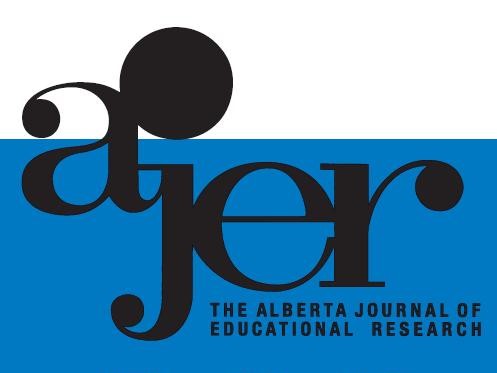Stress, Coping, and Well-being in Teachers and School Administrators
DOI:
https://doi.org/10.55016/ojs/ajer.v69i4.75886Abstract
This study explored educators’ self-reported state of well-being, perceived stressors, and use of coping strategies. Data collection consisted of an online survey and semi-structured focus groups. In total, 115 educators completed the online survey and 18 educators participated in the focus groups. Educators reported overall experiences of poor well-being, low resilience, high levels of compassion fatigue, and high levels of emotional exhaustion. Participants identified ongoing stressors related to supporting student learning and well-being, overseeing classroom environments, navigating limited community-based resources and supports, and managing increasing administrative demands and functions. Implications of the findings for practice are discussed.
Keywords: Stress; Coping; Well-being; Educators; Mental Health
Cette étude a exploré l'état de bienêtre déclaré par les éducateurs, les facteurs de stress perçus et l'utilisation de stratégies d'adaptation. La collecte des données a consisté en une enquête en ligne et des groupes de discussion semi-structurés. Au total, 115 éducateurs ont répondu à l'enquête en ligne et 18 éducateurs ont participé aux groupes de discussion. Les éducateurs ont fait état d'expériences globales de malêtre, de faible résilience, de niveaux élevés d'usure de la compassion et de niveaux élevés d'épuisement émotionnel. Les participants ont identifié des facteurs de stress permanents liés au soutien de l'apprentissage et du bienêtre des élèves, à la supervision des environnements de classe, à la navigation dans les ressources et soutiens communautaires limités, et à la gestion des demandes et fonctions administratives croissantes. On discute des implications des résultats pour la pratique.
Mots clés : stress ; adaptation ; bienêtre ; éducateurs ; santé mentale
Downloads
Published
Issue
Section
License
UNIVERSITY OF ALBERTA COPYRIGHT LICENSE AND PUBLICATION AGREEMENT
If accepted, authors will be asked to sign a copyright agreement with the following points:
A. Where there is any inconsistency between this Copyright License and Publication Agreement and any other document or agreement in relation to the same subject matter, the terms of this Agreement shall govern.
B. This document sets out the rights you are granting in relation to publication of your article, book review, or research note entitled (the “Article”) through inclusion in the academic journal titled Alberta Journal of Educational Research (the “Journal”) published through the Faculty of Education, representing the Governors of the University of Alberta (the “Journal Editor”).
C. There will be no payment to you for this publication and grant of rights. In consideration of the agreement to publish the Article in the Journal:
1. You are warranting that:
- the content of the Article is your original work, and its content does not contain any material infringing the copyright of others; or, where the Article is not entirely your original work, you have obtained all necessary permissions in writing to grant the rights you are giving in this agreement;
- the content of the Article does not contain any material that is defamatory of, or violates the privacy rights of, or discloses the confidential information of, any other person;
- the Article has not been published elsewhere in whole or in part, and you will not allow publication of the Article elsewhere without the consent of the Journal Editor;
- the names of all co-authors and contributors to the Article are:
2. You agree to license the copyright in the Article to the Journal Editor, on a worldwide, perpetual, royalty free basis; and to the extent required by the terms of this agreement. You shall retain the right at all times to be acknowledged as the/an author of the Article.
3. You further agree that the Journal Editor has the entitlement to deal with the Article as the Journal Editor sees fit, and including in the following manner;
- The right to print, publish, market, communicate and distribute the Article and the Journal, in this and any subsequent editions, in all media (including electronic media), in all languages, and in all territories, ing the full term of copyright, and including any form of the Article separated from the Journal, such as in a database, abstract, offprint, translation or otherwise, and to authorize third parties to do so;
- The right to register copyright of the Journal;
- The right to edit the Article, to conform to editorial policy as the Journal Editor sees fit.
4. If any co-author or contributor to the Article does not sign this agreement, the Journal Editor reserves the right to refuse to publish the Article.



